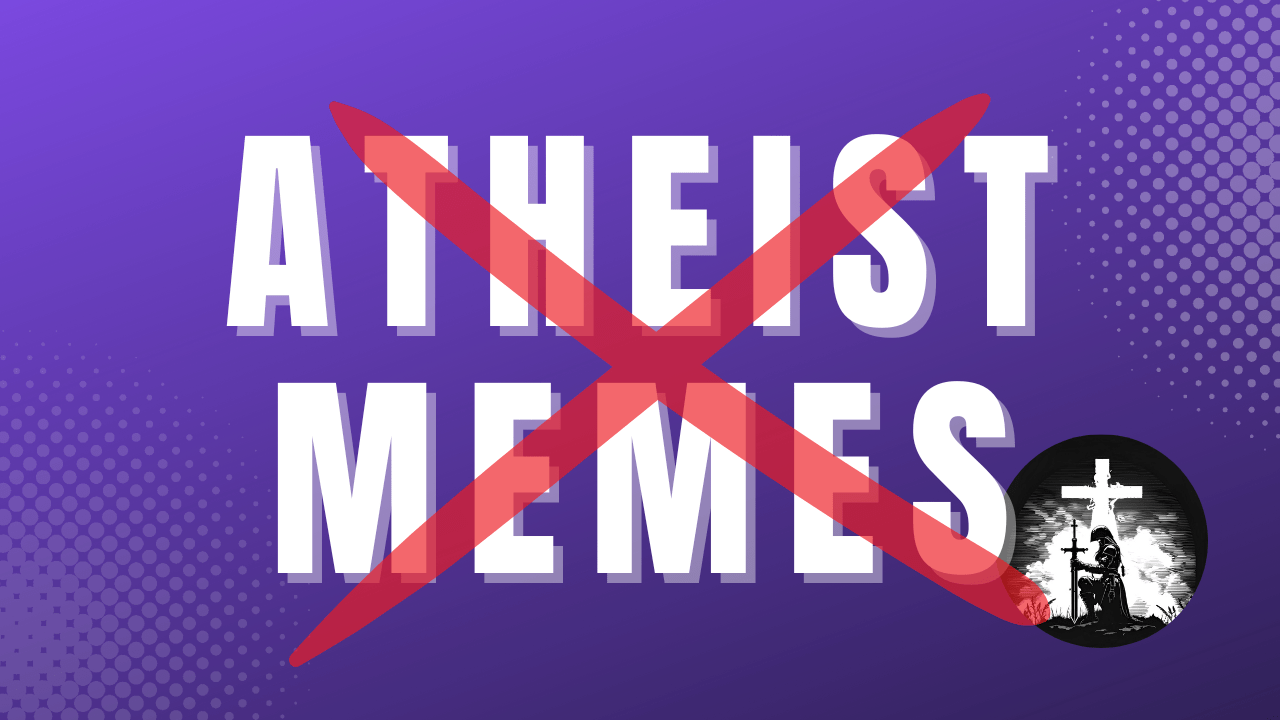The following meme is shared by people who have lost their Catholic faith and comment that in the past, they were devoted catechists and retreat participants. Let’s learn how to react to these memes with empathy and Christian charity.
“When you were one of the best at catechism, went on retreats, and ended up becoming an atheist… bet they didn’t see that coming.”

It’s vital to understand that faith and religious belief are personal and complex matters that cannot be reduced to mere catechetical skills or religious retreats. People may change their beliefs for various reasons, and discrediting their experiences is not fair.
It’s important to recognize that faith is not always a linear path; some may go through periods of doubt or questioning, even after being devoted Catholics. In my case, despite having followed the Catholic faith since childhood, receiving all the sacraments, and participating in various spiritual retreats, I eventually became a staunch atheist.
From a Catholic perspective, the existence of God is a fundamental truth, and therefore, Catholics consider atheists mistaken in their belief. However, we should not look down upon those who do not share our faith; instead, we can present our reasons with respect and love.
Our task is to defend our faith with rational and theological foundations while being compassionate and respectful. Let’s not judge or discredit the experiences of others, but instead, show empathy towards their spiritual journeys.
Respect for others involves listening to their perspectives with understanding, offering a vision based on the truth of Christ. It is not our role to judge or impose our faith, but to extend a compassionate hand to those who question or doubt.
Christian love compels us to desire salvation for all, but we acknowledge that each person has their own spiritual path. Our testimony and prayers can be powerful tools to bring them closer to the truth.
Let’s understand that some atheists may be comfortable in their position and may not seek to change their belief. Our task is to offer the truth with love, respecting their freedom of choice.
However, when this atheist is someone we love, we fear that their denial of God puts their salvation at risk. In these cases, we must understand that judgment of condemnation or salvation is not ours to make; we trust in God to guide hearts towards His light and truth. Let us follow Christ’s command: to love God and neighbor, being a living example of our faith and hope on the path to salvation.
My process of conversion was a sincere search for truth; for years, I was sincerely mistaken, and upon discovering the inconsistencies in my ideas, I underwent a very personal and unique inner struggle that some converts may identify with. On the other hand, those who insist on their religious skepticism won’t understand until they let go of nihilistic, materialistic, and humanistic philosophies, which is why our reasoning clashes and is rejected by the atheist. Therefore, our primary weapon as Catholic apologists is prayer for non-believers.
Let us pray:
“Our merciful Father,
Today we come to You with humble hearts,
to pray for those who have not yet known Your love.
We ask, Lord, for the atheists who seek the truth,
that in their sincere search, they may find Your light and guidance.
Open their hearts to the possibility of Your existence,
and let them experience Your love and presence.
Grant them the grace of understanding and wisdom,
so they may see the beauty of Your creation and Your mercy.
Pour Your Holy Spirit upon them,
so they may find comfort and peace in Your divine embrace.
Help them overcome doubts and obstacles,
and guide them towards the path of truth and hope.
May they find in the Catholic faith a safe refuge,
where they can know Your boundless love and eternal truth.
We ask, Lord, that You draw them close to You with Your infinite love,
and that, in Your grace, they may experience the joy of conversion.
Amen.

